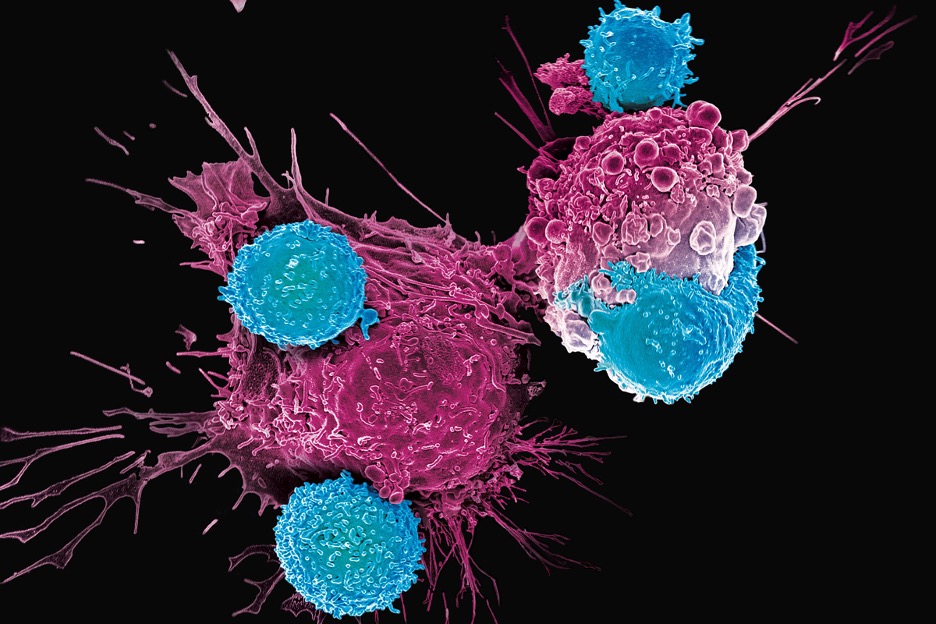While unlikely to trigger the cytokine storm, HHV-6 infection may perpetuate it, and contribute directly to cytopenias and pneumonia.
Cytokine release syndrome. Cytokine release syndrome (CRS) is an explosive immune response often triggered by infections or immunotherapies such as CAR-T therapy.
HHV-6 has been associated with various severe inflammatory states, including drug rash with eosinophilia and systemic symptoms (DRESS) and neuroinflammation. A recent systematic review found that reactivation of HHV-6 is frequent, following the allergic trigger and onset of DRESS. (Sharma 2022, Kim 2020) The high prevalence of HHV-6 reactivation infection is believed to be a result of increased activated CD134+ T cells, which serve as the entry receptor for HHV-6B, and multiple studies have shown that HHV-6 reactivation occurs in response to elevated TNF-alpha and IL-6 (Yoshikawa 2006).
So while there is little evidence that reactivation of HHV-6 causes cytokine release syndrome in CAR-T cell therapy it may upregulate the expression of proinflammatory cytokines (Reynaud 2013) and thereby prolong the syndrome.
Read the full paper: Lareau 2023

